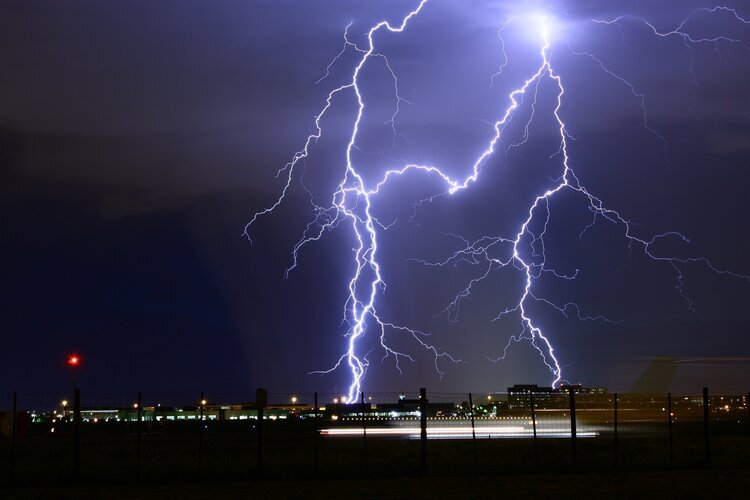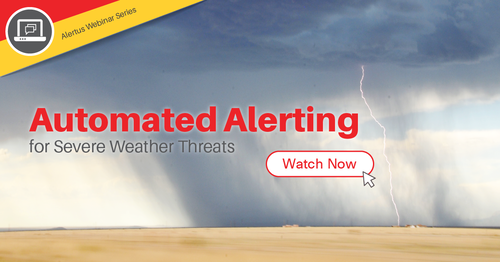Severe Weather Alerting: Steps & Resources to Get Started
By Stephanie Osorno, Marketing Copywriter at Alertus Technologies
This winter’s brutally cold, snowy, and icy weather has left people across the country — from Texas to the Gulf Coast and Northeast — counting down to the warmth of spring and summer.
And while warmer days will be approaching soon, severe weather threats such as tornadoes, hurricanes, flooding, and wildfires are on the horizon.
This raises a big question for a variety of communities and businesses: Does your organization have a crisis communication plan in place to ensure safety and maintain business continuity during a severe weather event? To help you and your team tackle severe weather preparation, we’ve gathered a few severe weather alerting resources below.
Before you dive into our severe weather resources, let’s review two key steps as you begin the severe weather preparation process.
Assess Your Severe Weather Alerting Needs
A successful severe weather plan will address your organization’s specific notification requirements, challenges, and gaps. Start by evaluating your alerting needs when it comes to severe weather.
Here are some questions to consider:
How do we monitor severe weather in our area?
Who is responsible for severe weather alerting? Who should be?
Do we have the communication tools in place to quickly notify everyone?
What is our activation process like? Does it need to be simplified?
Are we accounting for all individuals, including those with different disabilities?
With a better understanding of how your organization could benefit from severe weather alerting improvements, you’ll be able to implement a customized and valuable mass notification solution.
Implement a Comprehensive Mass Notification Solution
Mass notifications are crucial to heighten awareness about a severe weather emergency. With a comprehensive, reliable, and flexible mass notification solution, you can rapidly disseminate both visual and audible notifications to your entire organization for dry ice hazards, a blizzard alert, tornado and thunderstorms warnings, and much more.
In the event of a tornado, for example, an innovative alerting device like the Alertus Alert Beacon can serve as a tornado siren or tornado alarm using its bright strobes and clear emergency tone sounders. It can also display a customized message about the tornado and how to appropriately respond. The Alert Beacon has the flexibility to integrate with existing communication devices such as digital signage, desktop computers, speakers, and other external equipment for multilayered and redundant severe weather alerting.
In addition to providing you with a wide range of alerting options, a high-quality mass notification solution will be able to offer weather feed integration from AccuWeather Skyguard®, Severe Weather Warnings, and the NWS for weather alerts specific to your exact location and region. This means you won’t have to depend on varying weather alerts from a weather radio or mobile device.
Severe Weather Alerting Resources
Blogs
Prepare Your Business for Severe Weather Threats
Discover three important things to keep in mind as your organization develops a suitable severe weather alerting plan.
Severe Weather Alerting: Ask an Expert
Learn from an expert! Tim Pridemore, Emergency Management Coordinator at the University of Tennessee at Chattanooga, shares his thoughts on preparing for and responding to severe weather.
Real-Time Lightning Alerts with Alertus Lightning Detection
Gain insight on three ways your organization can plan ahead of time for lightning strikes and severe storms.
On-Demand Webinars
Check out our on-demand webinars for a better understanding of how Alertus’ solutions can help with your organization’s severe weather alerting needs.
Prepare for Severe Weather Threats with Alertus
Automated Alerting for Severe Weather Threats
Videos
If you prefer more visual guidance, watch our quick, yet informative severe weather-focused videos.
The threat of severe weather may seem daunting, but taking first steps toward building an effective severe weather alerting plan will help to protect your community and minimize business disruption in the event of a severe weather emergency.






